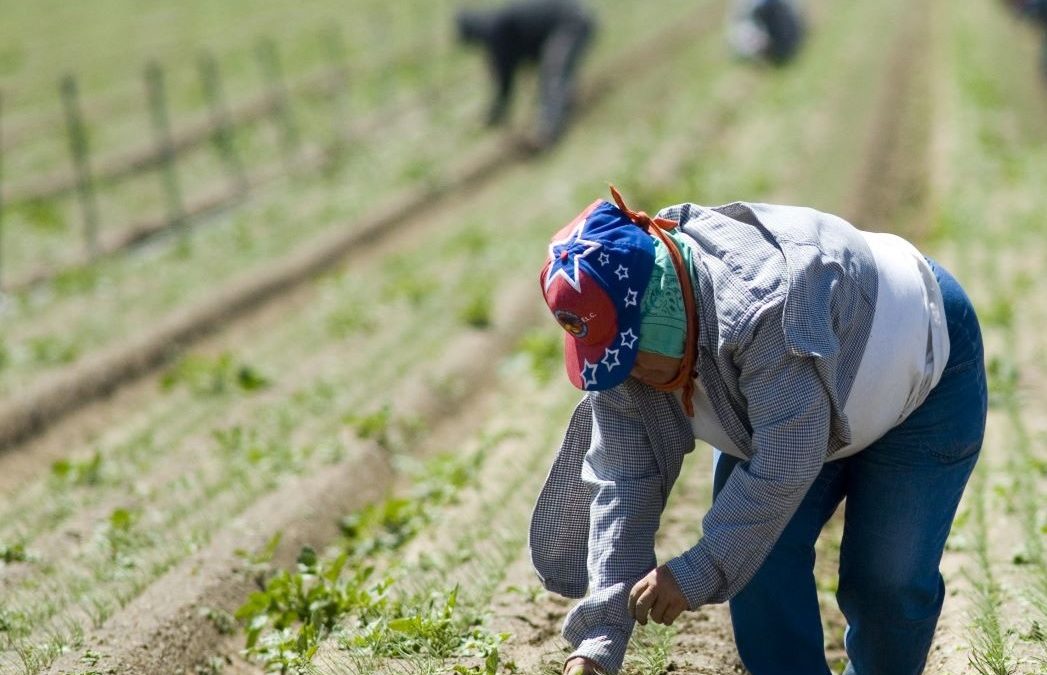H-2A farm workers who harvested apples for Stemilt Ag Services in over 36 orchards in Eastern Washington in 2017 filed an employment rights class action lawsuit today against Stemilt Ag Services based in Wenatchee, Washington. The H-2A workers allege that Stemilt violated the federal Trafficking Victims Protection Act (TVPA) and the Washington Law Against Discrimination through threats and intimidation that caused the H-2A workers to believe that they would suffer serious consequences if they did not meet Stemilt’s labor demands.
“This case seeks to protect the rights of H-2A workers, some of our most vulnerable workers, who often come from very poor areas in Mexico and are being taken advantage of by one of the largest agricultural employers in the United States,” said Columbia Legal Services attorney Diana Garcia. “Farm workers perform some of the most arduous jobs, often in extreme weather, to help put fresh food on our tables. They deserve dignity and respect, not threats and retaliation for asserting their rights.”
H-2A workers are highly vulnerable field workers in the United States,[1] because they are excluded from the primary federal law that protects all other farm workers. They are highly susceptible to retaliation because labor recruiters in foreign countries routinely refuse to rehire H-2A workers who try to improve working conditions for themselves and others. H-2A farm workers come from rural, impoverished villages and are often heavily indebted when they enter the United States. Their work visas bind them to a single employer, with no freedom to seek other employment if working conditions are substandard or the employer does not comply with the labor contract. Therefore, their only choice is to keep working or go back to their home country at their own expense, and without any prospect of future work to pay their debts.
Columbia Legal Services and Keller Rohrback L.L.P. filed the lawsuit in federal court on behalf of Gilberto Gómez García, Jonathan Gómez Rivera, and all other similarly situated H-2A workers who worked for Stemilt in 2017.
Stemilt’s H-2A contract did not contain any production standards. Yet, Gómez García and Gómez Rivera were told that they had to pick a certain number of bins of apples per day. If they did not meet this production standard, they would receive written warnings. They were routinely threatened that if they received three written warnings, they would be fired, returned to Mexico without expenses paid, and banned from future employment. The Gómezes claim their working conditions were intolerable due to Stemilt’s threats to fire them if they did not meet the unlawful production standards and due to Stemilt’s threats that they would not be rehired in the future by Stemilt or other U.S. companies.
The workers also allege that when H-2A workers were transported to other Stemilt orchards to work, they were not compensated for the time that they spent waiting before the work day began and after the work day ended. Stemilt’s managers routinely required the workers to wait approximately half an hour or more before they were permitted to start work and while the manager completed paperwork at the end of the day.
Over 1,100 H-2A workers could be members of this proposed class action. The complaint asks the court to award monetary damages to the named Plaintiffs and members of the class.
Media Contacts
Diana Garcia, (509) 374-9855 x426
diana.garcia@columbialegal.org
[1] See, “Close to Slavery,” Southern Poverty Law Center, https://www.splcenter.org/20130218/close-slavery-guestworker-programs-united-states; “No Way to Treat a Guest: Why the H-2A Agricultural Visa Program Fails U.S. and Foreign Workers,” Farmworker Justice Fund, https://www.farmworkerjustice.org/sites/default/files/documents/7.2.a.6%20fwj.pdf.

Recent Comments